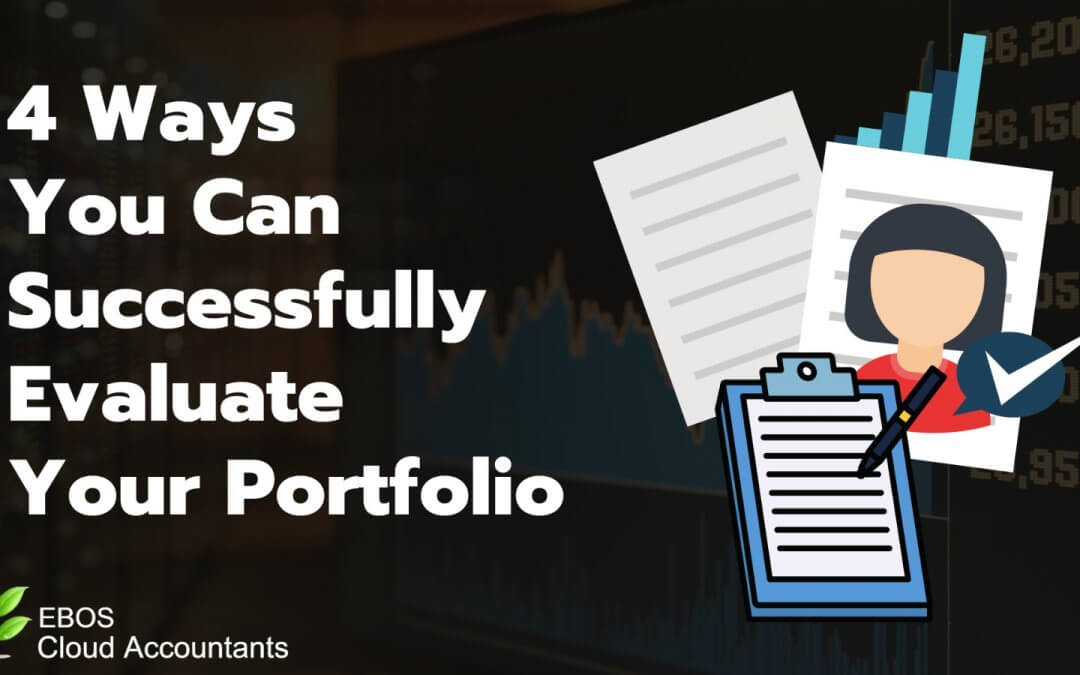Always keep in mind your financial goals and evaluate your portfolio from time to time. If you are too occupied to do all the calculations, you can do the evaluation by entering your holdings into automated investment analysis. blow is the best 4 practices to evaluate your portfolio.
A well-balanced portfolio minimises your risk. A loss in one asset may be off-set by the gain in another. It also grows in value to shield you from the loss of spending power due to inflation, as it includes assets that tend to increase in actual value over time.
A good portfolio also improves your liquidity. It comprises investments that can be easily liquidated, making it possible to access sufficient funds quickly in time of need. It may also facilitate tax savings by allowing you to invest in places that provide tax relief in terms of deductions and exemptions, lowering your overall tax liability.
The security and growth of your investments must be evaluated and managed at timely intervals. Let us categorically break down portfolio management for you.
What are the different ways of portfolio management?
Portfolio Management strategies are often variable. However, we may divide them into the following four categories:
- a) Active Portfolio Management
This type of portfolio management necessitates a high degree of market knowledge. If you are an active trader with a high risk threshold, this technique is for you. A portfolio manager using an active strategy seeks to outperform the market in terms of returns. The plan involves rigorous market analysis and extensive diversification. You must also have a solid grasp of the business cycle. The most significant advantage of active methods is exceeding the market expectation while gaining excellent returns.
Looking to build an active portfolio that may help you multiply your wealth?
- b) Passive Portfolio Management
The proponents of passive portfolio management believe in the efficient market theory, hence it isn’t concerned with ‘winning the market.’ They think fundamentals would always be mirrored in the underlying asset’s value. If you are an investor who is looking to minimise risk, this strategy will suit you best. The risk quotient is lower as investment is done for the long-term, in line with the underlying benchmark index. Another major advantage of passive investing is that it is the least expensive option to deploy. There is no frequent buying and selling, instead you just sit out and hold your investment as it gains value over the years. Making quality picks becomes imperative here.
- c) Discretionary Portfolio Management
If you wish to invest in the market but do not have enough time to spare, you can still do so using a discretionary strategy. There may also be cases where you are not fully aware of the market conditions to make the correct investing decisions. But using this portfolio management strategy, you can benefit from the knowledge of the experts. The portfolio manager has entire control over their client’s investment decisions. The manager makes both purchase and sale choices on your behalf and employs whichever approach they believe is optimal. This sort of plan can only be provided by persons with substantial financial expertise and experience. All you have to do is provide the amount you wish to invest and the details of your risk profile and your financial goals. Trust in the abilities of the portfolio manager plays an important role.
- d) Non-Discretionary Portfolio Management
This strategy involves a non-discretionary fund manager who functions primarily as your financial advisor. The manager will provide you with the benefits and drawbacks of investing in a specific market or units of a company, but will not carry out any investment without your approval. The fundamental advantage of non-discretionary investment is that it allows you to consult with a financial professional without giving up control over your investment decisions.
Backed by years of expertise in managing portfolios and a keen understanding in making the right investing decisions, we could be the perfect partner you’ve been looking for to manage your portfolio. Call Us for a quick discussion today!







